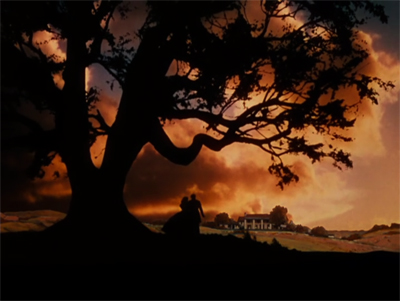Gone with the Wind
July 1, 2014

Gone
with the Wind is considered one of Hollywood’s best
films. This movie is often in film critics top ten films. What the movie does
is show an excellent equivalence of meaning between the source text and its
novel counterpart. The novel’s theme of survival is seen through the eyes of
the heroine of the movie, Scarlett O Hara Hamilton Kennedy Butler. The film,
like the novel, is about Scarlett O Hara, a spoiled Southern belle who uses her
good looks and flirtatious ways to get her way.
Scarlett is in love with a man, Ashley Wilkes, who marries his cousin,
gross, Melanie Hamilton. Scarlett marries men to get what she wants to get away
from her sisters. Plus Scarlett loves money. The movie and novel takes place
right before, during, and after the American Civil War. During the war the
audience watches as Scarlett flirts with men and marries men in order to
survive. One man sees Scarlett for who she really is, this man is Rhett Butler.
Rhett Butler loves Scarlett and all her faults but ultimately, like Scarlett,
finds the strength for his own survival. The author of the novel, Margaret
Mitchell, was a grandchild of a woman who lived and survived the American Civil
War. Mitchell’s grandmother taught her to use her brains for survival,
something Mitchell imbued into the character of Scarlett in the novel and
something at the screenwriter did with the movie script. The movie is universally
loved because we all have to use our brain for survival.
Scarlett
O Hara famous speech, “As God as my witness speech” only proves the equivalence
of meaning between novel and film adaptation. In the novel, Scarlett uses her
wit, her intelligence, her southern belle charm to go try to secure funds from
wealthy relatives. They turn her down. When this happens she marries Frank
Kennedy, not for love, but for money. She did what she had to do for survival
and to keep her family alive. Scarlett did what she said she would but it kept
her alive and she survived the hardships and hell of war and despair. Scarlett
was not the only survivor in the movie. The movie made Rhett Butler a survivor
too. Rhett survived Scarlett and the war. Rhett used his intelligence and money
to win Scarlett over and he survived Scarlett unloving attitude toward him. It
took Melanie’s death for Scarlett to wise up to realize she loved Rhett. Rhett
had to make a decision to fight or flight for survival and he fled. Rhett just “didn’t
give a damn”. Rhett put up his best
fight and survived to live another day.
Scarlett’s last speech only solidifies Margret Mitchell’s and the
screenwriter theme of survival. “Tomorrow is another day” Yes, life sucks at
the moment but I will survive and I will fight for my place.






